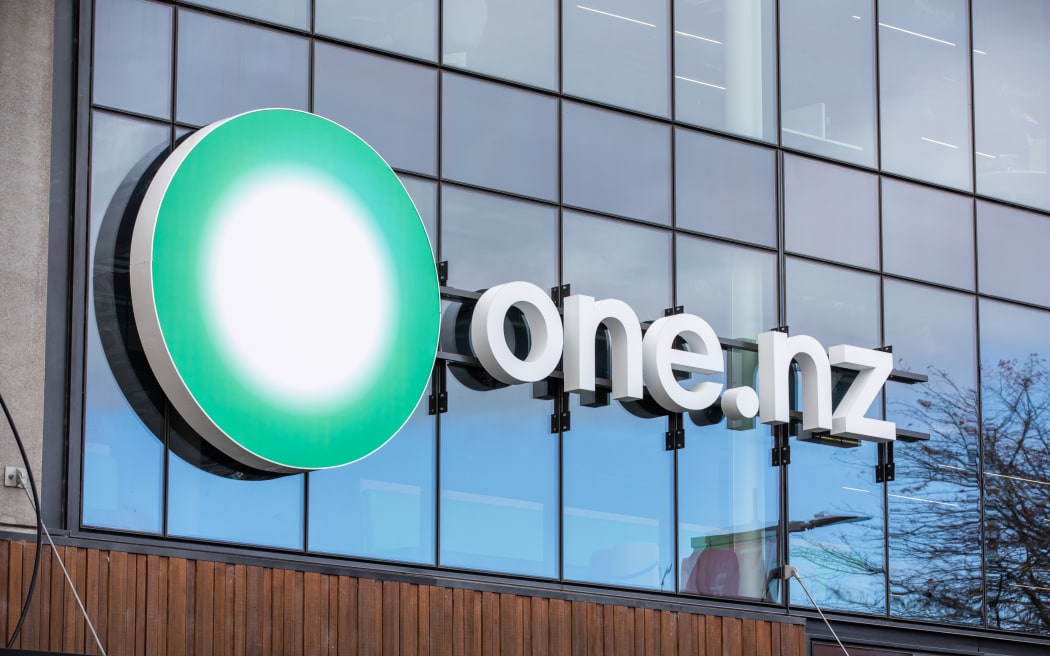
Photo: RNZ / Nate McKinnon
The Commerce Commission has filed proceedings in the High Court against One NZ for allegedly failing to ensure that vulnerable customers can call 111 during power cuts.
The commission alleges that the telecommunications provider, formerly known as Vodafone, has breached the 111 Contact Code multiple times.
"We've brought this action in light of One NZ's disregard for the Code and the safety of vulnerable consumers," telecommunications commissioner Tristan Gilbertson said.
"One NZ has a long history of breaching consumer protection laws - so we need to send a strong signal that we won't tolerate any disregard for its mandatory Code obligations."
The 111 Contact Code - which came into effect in February 2021 - was created as consumers moved away from copper landline connections, which work during power cuts, to fibre and other landline technologies, which require a power supply.
It protects consumers who for health, safety or disability reasons rely on a landline connection to call 111.
If they do not have a mobile phone and cannot call 111 in a power cut, then their provider must supply a device enabling them to make emergency calls.
Those calls must be able to last at least eight continuous hours and incur no cost to the consumer.
Gilbertson said there was widespread compliance with the Code across the telecommunications industry, so One NZ's alleged failure to inform and protect customers was a serious concern.
"It's critical that all telecommunications providers comply with the Code to ensure the safety of their customers whose lives may be at risk in a power cut. The onus is on them to ensure their customers know how they can protect themselves and where to go for further support.
"Just one breach could have devastating consequences."
Speaking to RNZ's Checkpoint, Gilbertson said One's failure to live up to its obligations under the code was "bitterly disappointing" as One was the country's second largest telecommunications provider.
"People reasonably expect better from an operator of One's size and resources."
He said it was also disappointing as One was involved in the development of the code before it even went live.
"The code itself was in the trenches with the industry and the commission under development for a couple of years. So One was closely involved in that process, knew what was coming, knew the nature of the obligations and yet, when the time came to implement the code in 2021, found itself caught short.
"It was not prepared for the implementation, it scrambled to get something up and running, and that was the beginning of the problems that we see."
"One could have - and should have - done better."
While relatively few customers were affected, Gilbertson said this made it even more egregious that they could not be catered for.
"At the moment, according to the most recent reporting under the code, there are 684 vulnerable consumers, and across New Zealand there are a total of more than 573,000 landline services.
"So not a lot of people, but these are the most vulnerable people in our community, these are the people whose lives are most at risk in an emergency situation because of health or disability reasons and these are the ones who should have been provided with an alternative means of contacting 111 when the power goes out.
"The concern we have is that there are still ongoing breaches of the code that need to be resolved, and resolved quickly, so that we can be comfortable and much more certain that One is discharging its obligations. We just don't have that assurance yet."
The commission said providers were required to ensure consumers were aware of the Code, including through annual reminders.
Most providers had supplied vulnerable consumers with either a mobile handset or a battery back-up for their landline phone if they live outside mobile coverage areas.
Providers breaching the Code can face fines of up to $300,000 for each breach and $10,000 per day for continuing conduct.
In a statement, One NZ said it was disappointed and surprised over the legal action and had co-operated with the commission after becoming aware of its concerns.
"We were open with the commission about where we had gaps, such as missing the deadline to contact some existing vulnerable customers within 12 months," the company said.
"We also missed ensuring that certain annual communications went to all landline customers about the 111 Code, however we continued to share the information via other channels including on our website, as part of the sales process, and in welcome emails."
It said it had rectified any gaps and ensured mobile phones or back up batteries for customers needing them, but there were only 120 vulnerable customers out of 100,000 landline connections, and it was unaware of anyone affected or harmed.
One NZ has been prosecuted and convicted six times for breaches of the Fair Trading Act since 2010, including receiving a $3.675 million fine in 2023 for misleading consumers in the marketing of its FibreX broadband.



